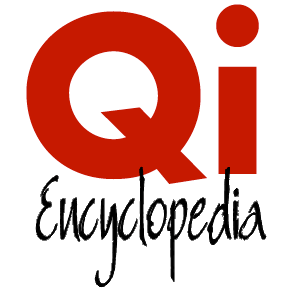
sponsor: Qi Journal
Navigation:
Portals
|
article: Qi and Feng Shui: An Introduction | author: John Voigt | date: 2018-01-30 07:57:05
|
|
Qi and Feng Shui: An IntroductionBy John Voigt

Mt. Rainier overlooking the Port of Tacoma. In Feng Shui theory a powerful country will have mountains, and a financially prosperous one plentiful water. The Seattle Metropolitan area, which includes Tacoma, is a case in point with one of the strongest economies in the world.
The Qi within Feng Shui is invisible, but its effects are observable in the movements of the heavenly bodies as they define the passing of time, in the shapes of mountains, and the placement of buildings, in all bodies of water from oceans to tiny ponds, and especially in the thoughts, emotions and health of humans. Heaven (Sky) Qi is the energy that comes down from the sky. Examples are the sun’s rays granting warmth and light and the moon affecting ocean tides. Life-granting rain falls down on us from above. In excess any of these can destroy or kill: The sun can cause draught or desserts, sun burns or skin tumors. Too much rain can cause floods. Hurricanes, tornadoes, blizzards, coastal flooding, and Global Warming are all signs of excesses or imbalances in the manifestations of Heavenly Qi. 
Fountain of Wealth, Suntec City Shopping Mall, Singapore. Singapore takes its Feng Shui very seriously. The buildings surrounding the fountain represent fingers and thumb of a left hand. The fountain represents the palm. The inward flowing water represents lots of money pouring in. Earth Qi is the potential and kinetic energy stored in and under the ground. A simple way to tell if Earth Qi is rich and abundant is to see how trees, plants, vegetation are growing, and if there is thriving wildlife. A healthy rainforest exhibits rich earth qi, as does a green luxuriant forest—even a backyard garden can benefit a home. Parks in busy crowded cities can be locations of healthy earth qi. This is one reason why people choose to do qigong or tai chi (taijiquan) in such places early in the morning. Oceans, rivers, lakes, ponds, and swimming pools are also part of Earth Qi, but because the water evaporates into the air they also affect Heaven-Sky Qi. Mountains are important sources and conductors of Earth Qi. They can block and protect us from harsh weather, as their inner hidden areas can offer a refuge from the pollution and psychic bad energy of modern civilization. The presence of mountains tend to make people feel more secure, and they are usually beneficial to have in the environment. But it is wrong to have the main entrance door of a place of residence directly face any mountains, or tall buildings, without proper protective shielding. The energy of Feng Shui can be good (Sheng Qi), or weakening (Si Qi), or harmful (Sha Qi). The tools and techniques of Feng Shui deal with gathering and increasing Shen Qi and reducing, deflecting, or eliminating Si and Sha Qi. Sheng Qi is life enhancing energy. Inherent in it are qualities and conditions of well-being, and prosperity. These in turn can bring forth feelings of contentment, happiness, and optimism. This is the upward and forward moving qi in bright, positive and refreshing locations often found in nature. Si Qi—(“Dead Qi”) is the stagnant, thick, depressing, depleting lack of energy in cluttered, dirty and dark spaces. It is found not only in buildings, but also outdoors in such things as piles of garbage, or untended junk yards. One remedy to correct this problem is to clean up the space and throw away the trash. Within a home, “Often lamps, fountains, mirrors, paintings, and plants are used to punctuate space and provide a soft undulating motion of qi, creating a space that is both friendly and peaceful.” [3] 
Bran Castle, Romania. Perched on a mountain, with its many straight lines and jagged angles this castle appears to be full of evil (sha) and death (si), making it a good choice for the lair of the fictional vampire, Count Dracula. Sha Qi—The word Sha means “evil”—as in misery, destruction, and ruin. In myths and legends Sha refers to devilish, demonic spirit entities. Sha Qi moves rapidly along straight long lines and in pointed and angular forms. When below the surface of the earth it sometimes is called “noxious rays.” When above ground it is often called “poison arrows.” Poison Arrows is Sha Qi that attacks in straight lines. Long straight or sharp structures that point to the front of a building can produce poison arrows. Especially noxious is two highways that form a T-junction directly in front of the main entrance door. In this case it may be possible to block this negative energy with a low fence, or with a hedge with a gate. Poison arrows can also be inside a house, coming from sharp, jagged, angular corners of walls or furniture. Muting the sharp edges with a light fabric, or blocking it with an artificial plant, or just moving it or you out of its way, may offer solutions to this problem.
Chinese Script for Key Terms Quick Fixes that you can do: True Feng Shui is very complex and there are differing schools of thought held by various accomplished masters. But there are certain things which many practitioners hold in common that can be done to increase good qi and ward off bad qi: Clutter is the indication of negative energy. Keep your home neat and clean. Piles of dirty clothes on the floor or unwashed plates in the sink are both signs and causes of stagnant energy. There should be properly balanced aspects of yin (passive) and yang (active) energies for the particular space in question. For example, a bedroom should have rounded soft shaped furniture and calming colors. A pleasant sounding water fountain is a very Feng Shui touch. But there always needs the proper proportion of yin and yang: too much of either one in a space is bad. So in the bedroom, a place of sensuality, a yang fragrant red candle could be the proper to balance the yin of deep soft blue colors (yin). (see yin/yang). The simple rule of thumb in knowing the Feng Shui of an area is how it makes you feel. Bad Qi makes you feel frightened, disoriented, and devoid of energy. Good Qi makes you feel relaxed, secure, and refreshed. Endnotes:[1]^ “In China from the earliest times it was believed that the qi in the winds coming from hills and mountains and the qi in the water of streams and rivers were especially influential in people’s lives. Feng Shui (Wind Water) became the term to describe the positive or negative effects of this qi.” Livia Kohn. Health and Long Life: the Chinese Way. [2]^ In Chinese it is pronounced Fon(g) [high tone] – Shwăy [falling then rising tone]. [3] ^ L. Kohn. Health and Long Life: the Chinese Way. Sources Consulted:About.com Feng Shui at fengshui.about.com Henry Fong. Absolutely Feng Shui at www.absolutelyfengshui.com Livia Kohn. Health and Long Life: the Chinese Way. Livia Kohn. "Healing and The Earth: Daoist Cultivation in Comparative Perspective" Henry B. Lin. The Art & Science of Feng Shui. New World Encyclopedia. Elizabeth Moran, Master Joseph Yu, Master Val Biktashev. The Complete Idiot’s Guide to Feng Shui. Alpha Books, [in various editions]. Jerry Rich. “What is Bad Feng Shui.” at www.facebook.com/Fujianfengshui Lillian Too. The Illustrated Encyclopedia of Feng Shui. |

